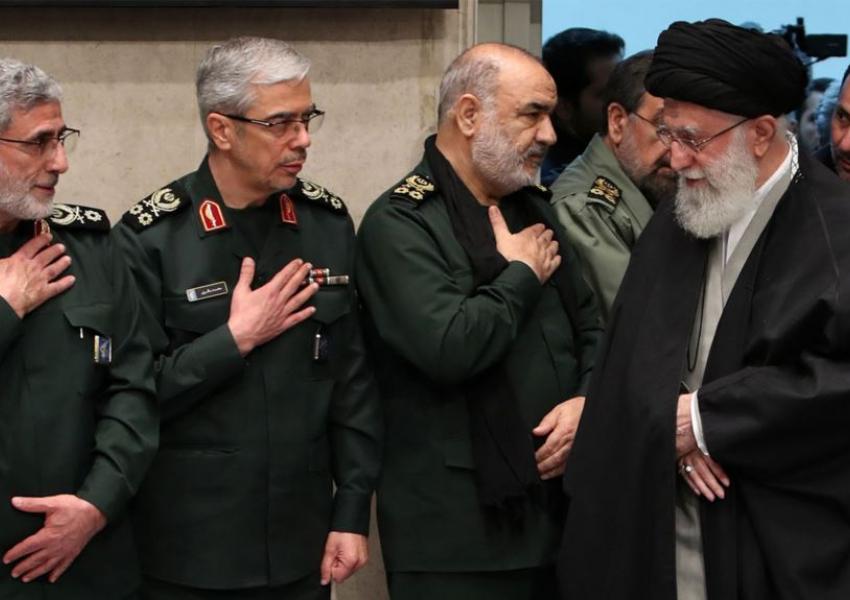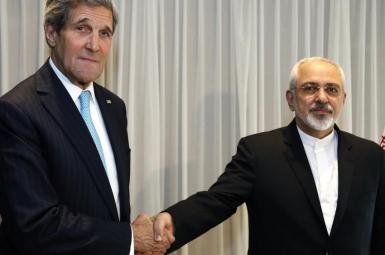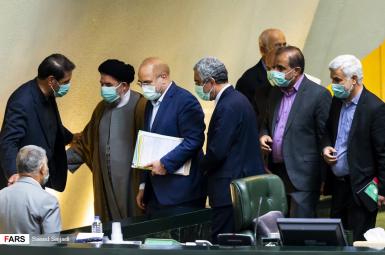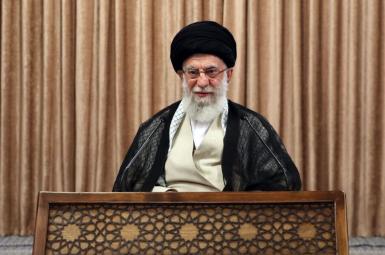
Khamenei IRGC Envoy Says 'Unjust' Zarif Remarks Will Be Remembered
Abdollah Haji-Sadeghi, representative of Supreme Leader Ali Khamenei in the Revolutionary Guards (IRGC), said Monday [May 3] that the Guards would "put up with injustice and unfairness but never forget it." Haji-Sadeghi was following comments made by Khamenei Sunday over remarks made in a leaked audiotape by Foreign Minister Mohammad Javad Zarif criticizing the role of the late IRGC general Qasem Soleimani in foreign policy.
Khamenei had chastised Zarif while reminding Iranians that foreign policy was decided in Iran, as elsewhere, collectively, and in Iran by the Supreme National Security Council.
Haji-Sadeghi, addressing Guards across the country through video-link during IRGC Ideological-Political Week, called Zarif's remarks "not suitable for the public sphere and sometimes untrue and incorrect." The foreign minister’s interview was part of an oral history project and given on the basis it would not be released until the government of President Hassan Rouhani leaves office in the summer.
"False allegations and unfair attributions have been leveled at the Revolutionary Guards, Qods [Quds] Force, and the esteemed martyr Soleimani directly and indirectly, none of which is true," Haji-Sadeghi said. Soleimani, who commanded the IRGC extraterritorial Quds Force, was killed with nine others by a United States drone attack in Baghdad in January 2020.
While media outlets affiliated to the IRGC had been outspoken over Zarif’s interview tape, IRGC commanders have been restrained. Government spokesman Ali Rabiei Saturday praised the military authorities for thwarting a "conspiracy to create discord" with the leaked audiotape.
One suggestion made by Zarif in the recording was that Russian President Vladimir Putin had "dragged" Iranian ground forces to Syria after the Russian air force had entered the war in September 2015 in support of President Bashar Al-Assad, an Iranian ally. Zarif claimed – contrary to many accounts – that Iran had no ground forces in Syria before a meeting in 2015 between Putin and Soleimani in Moscow. "Soleimani's visit to Russia was based on Russia's will, not ours," Zarif said.
Haji-Sadeghi said that Iranian forces, at the invitation of Assad, were fighting in Syria three years before the decisive Russian armed intervention. "Soleimani's genius was to draw Russia to the battlefield," Haji-Sadeghi noted.
Haji-Sadeghi also noted that "power generated by the likes of Soleimani" helped produce Iran’s 2015 nuclear agreement with world powers, the Joint Comprehensive Plan of Action. Zarif suggested in the interview that both Russia – by attempting to attach last-minute conditions to the JCPOA – and Soleimani wanted to undermine the agreement, and later, to sabotage it. As an example, he cited the Russian airstrikes in Syria in November 2017 and the flying of the Russsian fighter jets through the Iranian airspace. "Why did Russian planes flew [there] through the Iranian airspace [with the Guard's consent]? These all happened after the JCPOA [to undermine it]," Zarif said in the audiotape.
Haji-Sadeghi added that the leaking of the Zarif tape was "a planned move " designed to influence the June presidential election, although he did not suggest in whose favor.









